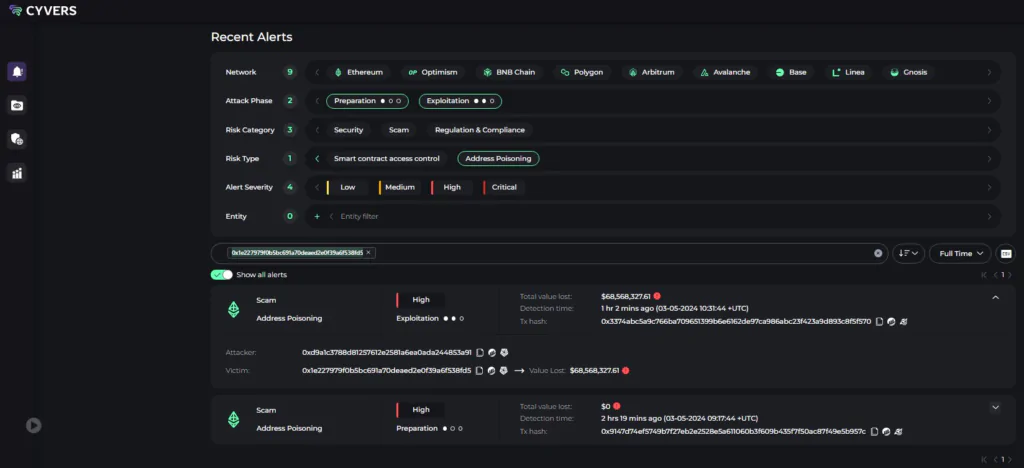
A cryptocurrency user lost $68 million of wrapped bitcoin (WBTC) due to an address-poisoning scheme. Cyvers, the security platform, and ZachXBT, a blockchain investigator, verified the loss of $68 million.
What is crypto address poisoning?
Address poisoning deceives the user into sending a legal transaction to the incorrect wallet address. The fraudster does this by replicating the legitimate wallet address’s first and final six characters.
They then rely on the sender not to see the different characters in the address and to send the money anyway. For background, wallet addresses may be as lengthy as 42 characters, demonstrating how simple it is to overlook a few characters if not paying close attention.
In this crime, the exploiter created a false wallet for a 0.05 ETH transaction before collecting 1,155 WBTC from the victim.
Unfortunately, hackers and fraudsters all throughout the industry use strategies like these to steal from investors. Every year, scam artists steal millions of dollars worth of cryptocurrencies.
This explains why there is such a heated debate among businesses and regulators, such as the SEC, about cracking down on Bitcoin. Scammers commit crimes in the cryptocurrency market by using address poisoning and other techniques.
If you want to send funds to a cryptocurrency wallet, ensure you are familiar with the wallet and, more crucially, all the address numbers.
The best AI image generator.






